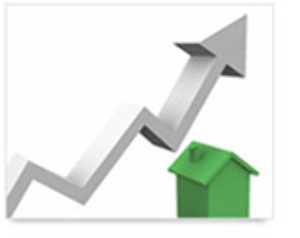by Miriam Bell

Trade Me Property has just released its March data and it shows the Auckland market is once again a contender.
Auckland’s average asking price soared to a new record high of $834,500 in March.
This was up by 2.1% on February’s average asking price of $817,150, and up 16.5% year-on-year.
Head of Trade Me Property Nigel Jeffries said that 12-month increase was a massive jump of $118,500, which equated to around $10,000 per month in potential capital appreciation.
It was not just the Auckland market that returned strong results in March.
The national average asking price also hit a new record of $573,000, which was up 4% on February’s average asking price of $550,600.
Average asking prices also increased in most regions year-on-year, with the Bay of Plenty (up 14.4% to $517,300), Waikato (up 14.3% to $436,650) and Hawke’s Bay (up 18.6% to $473,600) all seeing double-digit rises.
Jeffries said the March data was a significant reversal of the slowdown in the property market last year.
“It looks like the New Zealand property market is charging ahead again after being in the doldrums a little since November.”
The Trade Me Property data comes hot on the heels of yesterday’s REINZ data – which also showed the Auckland market is firmly in recovery mode.
The return to strong form of Auckland’s market has left many worried.
Labour’s Housing spokesperson Phil Twyford said evidence of record house prices in the SuperCity - and other major centres – showed attempts to cool the housing market had failed.
The data was evidence that, despite the government’s tax measures and the Reserve Bank’s LVR restrictions, the housing market has rebounded and is as hot as ever, he said.
“And the so-called ‘halo effect’ caused by Auckland’s runaway prices is now affecting would-be first home buyers in other towns and centres.”
Twyford said further action on the part of the government was necessary.
Economists have said the resurgence of Auckland’s market is a problem for the Reserve Bank as if it cuts the OCR it could add further fuel to the house price fire.
However, Property Institute chief executive Ashley Church said the Reserve Bank should think carefully before contemplating steps to cool the Auckland property market.
“We have some sympathy with the Reserve Bank’s frustration at being unable to bring about a sustainable reduction in house price inflation.
“But the Reserve Bank has to see the bigger national interest rather than focusing solely on its own tight objectives around maintaining inflation targets.”
Church said that, until Auckland’s supply issue is addressed, there isn’t much the Reserve Bank can do about the city’s house price growth.
The best approach, for the Reserve Bank, is to get out of the way and let the market take its course, he said.
“The national interest is best served by all parties working together to focus on initiatives which will increase the housing supply, primarily in Auckland.
“If we fix the supply issue, house prices will come off the boil on their own”.
| « Rental market on the rise | Free Investment Property Showcase Events: Auckland, Wellington and Christchurch » |
Special Offers
Sign In to add your comment

© Copyright 1997-2026 Tarawera Publishing Ltd. All Rights Reserved